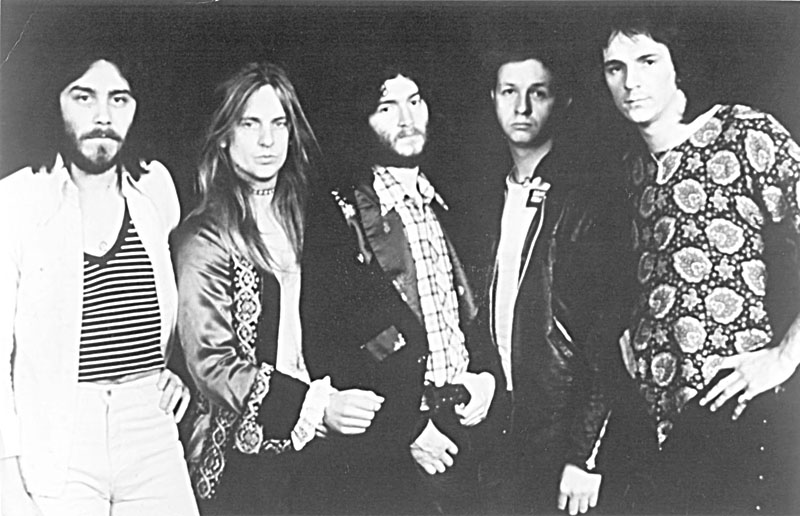Twenty-five years ago, Jeff Krulik and John Heyn filmed teenage metalheads tailgating outside a Judas Priest show in Landover, Maryland. In all of 17 minutes of Heavy Metal Parking Lot, the filmmakers capture the band’s Spandex-and-leather-clad disciples marinating their livers in Jack Daniel’s, attempting to roll preposterously proportioned joints, and engaging in clunky, battle-of-the-sexes horseplay that would be morbidly depressing among 30-somethings in a sports bar, but which in this context is forgivable, juvenile awkwardness. It’s a warts-and-all snapshot that amuses nostalgic aficionados of that genre and era as well as non-headbangers. But at this juncture, the cultural atmosphere burned onto celluloid in the 1986 documentary has moved well beyond its original context. Aside from being a justifiably loved cult classic, it also documents a time when Judas Priest was starting to lose their devout audience, one with a uniquely personal relationship with the band’s songs.
Watch the film with a die-hard Priest fan, and one unsavory topic rises quickly to the forefront of discussion. The film captures Judas Priest—then-closeted frontman Rob Halford, guitarists Glenn Tipton and K.K. Downing, bassist Ian Hill, and drummer Dave Holland—touring in support of 1986’s Turbo, arguably the most embarrassing entry in their catalog and one that temporarily threatened their previously rock-solid fan base. Seething with synthetic keyboard sounds, plagued by unintentionally ironic hetero-erotic lyrics, and outfitted with the worst leather jumpsuits this side of a Shazam! episode, the content and aesthetic of Turbo was an abomination after a decade of genre-defining works like Screaming for Vengeance, British Steel, and Sad Wings of Destiny. As loyal as metal fans are, they don’t typically have a lot of flexibility when it comes to abrupt shifts in style. Though Priest’s earliest works were more rollicking, blues-based affairs, most fans formed their affections around the band’s mid-career catalog, which was characterized by a punishing twin-guitar assault and dark lyrical ambience. Jubilant, pop-tinged tracks like “Parental Guidance” (meant as a retort to PMRC founder Tipper Gore’s anti-metal crusade, but so toothless it sounded more like a surrender to her conservative agenda) did not go over well. The goofy, caveman-themed video for “Locked In” did not help matters.
Speaking via phone from a tour stop in Mexico City, Tipton is good-natured when I ask him to discuss that misstep. “Turbo came under fire because it didn’t sound like what people thought of as Judas Priest,” he says. “Maybe we did experiment too much at some points in our career. We don’t regret it; sometimes it works, sometimes it doesn’t.”
What has always worked unfailingly is the touring machine of Judas Priest. Thanks perhaps in part to redeeming later albums like 1990’s adrenalin-spiking Painkiller, fans eventually forgave them for the Turbo travesty, and Priest remains one of the few older metal bands that can still fill arenas. And while Halford’s operatic wails still hit their mark beautifully and Tipton plays with the dexterity and speed of a musician 20 years his junior, what quite possibly makes the band endure is the intensely personal relationship fans seem to have with individual songs. When I asked recently freed death-row inmate Damien Echols of the West Memphis Three for his favorite Priest song, he texted back almost immediately and without hesitation, ” ‘Painkiller.’ ” Both shock-rock pioneer Alice Cooper and Black Sabbath bassist Geezer Butler cite British Steel‘s anthemic “Living After Midnight” as Priest’s defining moment. Slayer guitarist Kerry King swears by the gruesome grind of “Delivering the Goods” from 1978’s Hell Bent for Leather. I’m so eternally enamored with the title track from their 1974 debut that “Rocka Rolla” is tattooed on my forearm.
Shrewdly deploying this knowledge, Priest has just released The Chosen Few, a greatest-hits collection curated by their famous contemporaries. Metallica drummer Lars Ulrich selected “Beyond the Realms of Death”; his bandmate James Hetfield picked “Victim of Changes”; Lamb of God’s Randy Blythe stumps for their cover of Fleetwood Mac’s “The Green Manalishi (With the Two Prong Crown).” Naturally, Motörhead kingpin Lemmy Kilmister insisted on “Breaking the Law.”
“We thought it was a pretty interesting concept to see what our peers’ favorite songs were,” explains Tipton. “Priest can be a lot of things to different people, so we just wanted to see what Priest means to people individually.”
It’s a fitting benediction, of sorts, as the Judas Priest tour machine is going up on the blocks indefinitely. “It’s our final world tour,” says Tipton, sounding more relieved and weary than wistful. “We’ve been doing it for 40 years now, and it takes a lot out of you at our age, you know?” Indeed, it took so much out of Downing that he had to sit this last round out due to wrist problems.
“This is the beginning of the end,” concludes Tipton. “It’s sort of like we are putting a preservation order on ourselves.”








